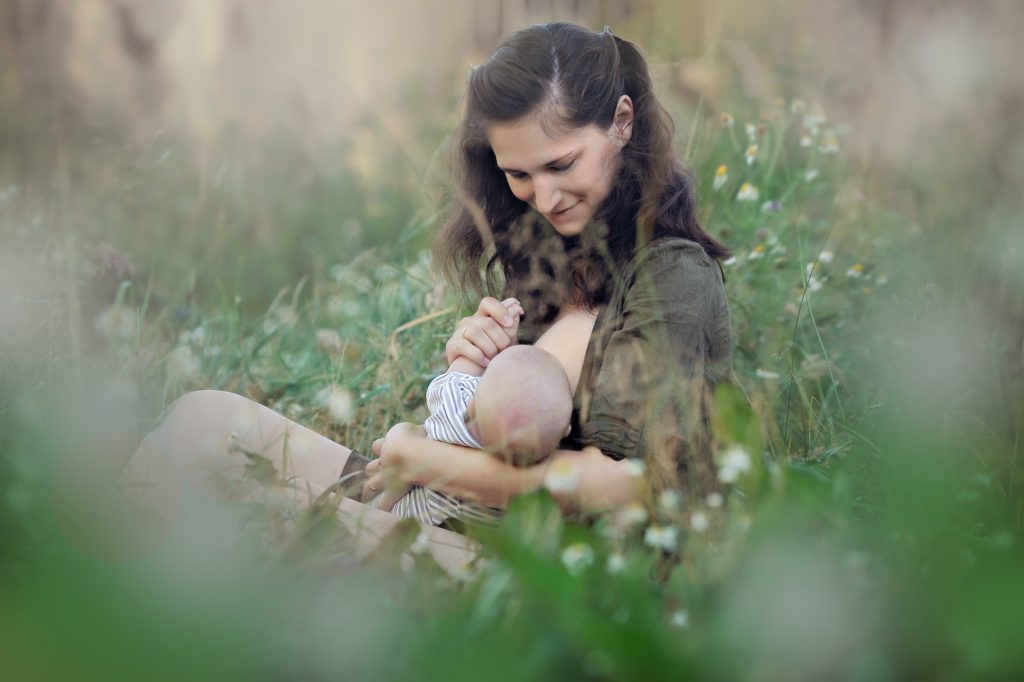A recent poll by Mama’s Boobie Box highlighted that 57% of Irish mums were the first to breastfeed in their family, meaning their mother’s or grandmothers did not breastfeed.
Only 12% cited that both their mothers and grandmothers breastfed before them. Surprised?
As a breastfeeding mother of two, I was motivated to do the poll after speaking about breastfeeding rates in Ireland on my local radio station Clare FM. Speaking alongside HSE lactation consultant Gobnait Murphy we both agreed that a massive society view of breastfeeding in Ireland must change before we can start seeing increases in breastfeeding rates.
As the majority of our parents’ and grandparents’ generation did not breastfed we have lost important knowledge about breastfeeding in our wider community.
Breastfeeding in Ireland through the decades
We need to go all the way back to the 1950s to understand why breastfeeding started to change in Ireland. It was around this time that infant formula was becoming more plentiful and if you were a mum to a large family you didn’t have time to breastfeed each child.
We need to go all the way back to the 1950s to understand why breastfeeding started to change in Ireland.
As formula became less expensive it became more popular. It was then a case of if you were breastfeeding, it must be because you were poor and could not afford formula. This kind of stigma became attached to mothers who were less well-off. Therefore mums who were more affluent had for the first time a choice on how to feed their babies.
During the 1970’s aggressive marketing campaigns and increased manufacturing of formula, meant it was more widely available than ever before. Bottle feeding was now the norm and breastfeeding was falling out of favour.
During the 1980s mums were consistently told formula was superior to breastmilk. Therefore the majority of babies born during the 80s were formula fed. This is when there was a massive shift in societal expectations of infant feeding and with the lack of information about breastfeeding widely available, breastfeeding rates continued to decrease.
Fast forward to 2006 and the amount of women breastfeeding leaving hospital was just 49% . This slowly started to increase and by 2015 it was up to 58% according to a report by Purdy and Cotter.
Breastfeeding in Ireland post-pandemic
A Bainne Beatha survey released in October 2022 (which included mums who’d given birth from January 2019-December 2021) gives us the most recent insight into breastfeeding rates in Ireland. It showed some increase in breastfeeding rates, although those exclusively feeding at one month still only remains at 52%.
On a positive note, 93% were still breastfeeding in some form after one month, albeit not exclusively. This data may represent an adjusted figure due to COVID pandemic as some mums felt it was easier to breastfeed during lockdown without negative influence from family and friends.
The survey of 5,412 women also highlighted how “inadequate and inaccessible” breastfeeding support was with 1 in 4 women given conflicting advice about breastfeeding.
How we can better support breastfeeding
Whilst we are starting to see some positive improvement in breastfeeding rates in Ireland, we still have a long way to go in terms of properly supporting new mothers and educating people on the benefits of breastfeeding.
Comments such as “just give him a bottle” or “can you not afford the milk” often still happen on a fairly regular basis for mothers in Ireland. These outdated and often negative comments only serve to undermine the mums that really want to breastfeed. What they need is support, understanding, and access to accurate breastfeeding information.
Here are a few basic things we could do as individuals and as a society to help support breastfeeding mums:
- Offer encouragement when you see a breastfeeding mum. Tell them they are doing a great job.
- Help a new mum in practical terms so she can focus on breastfeeding. Do some housework, cook a meal, or let her catchup on some sleep!
- Don’t suggest alternative feeding if she is struggling. Instead let her know where she can get some help. Help her find a breastfeeding helpline or a support group in her local area.
- Lastly, remember it is above all the mum’s choice on how she feeds her baby, but providing her with all the information prenatally, can help support a much more informed decision
Disclosure: The information and references within this guide were accurate at the time of the author writing and boobingit is not responsible for any inaccuracies post-publishing.
